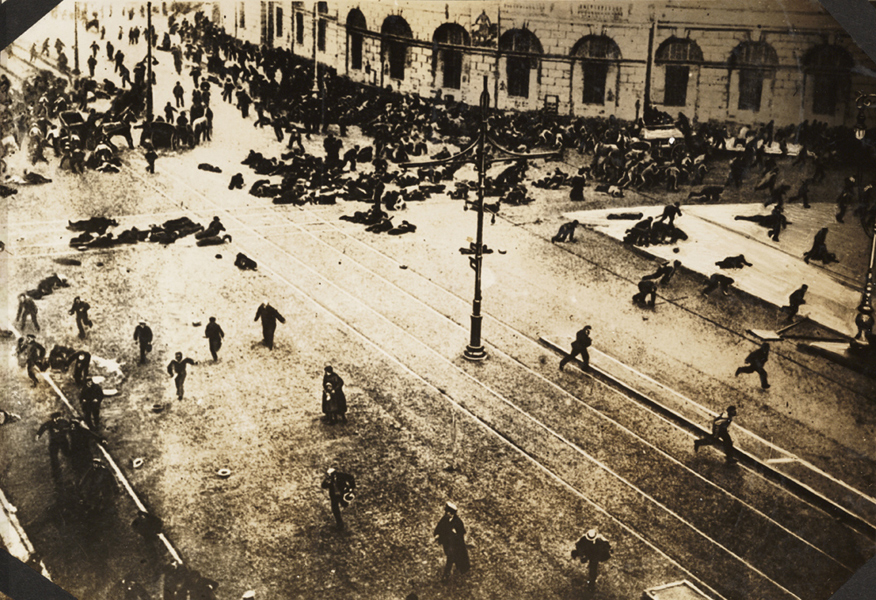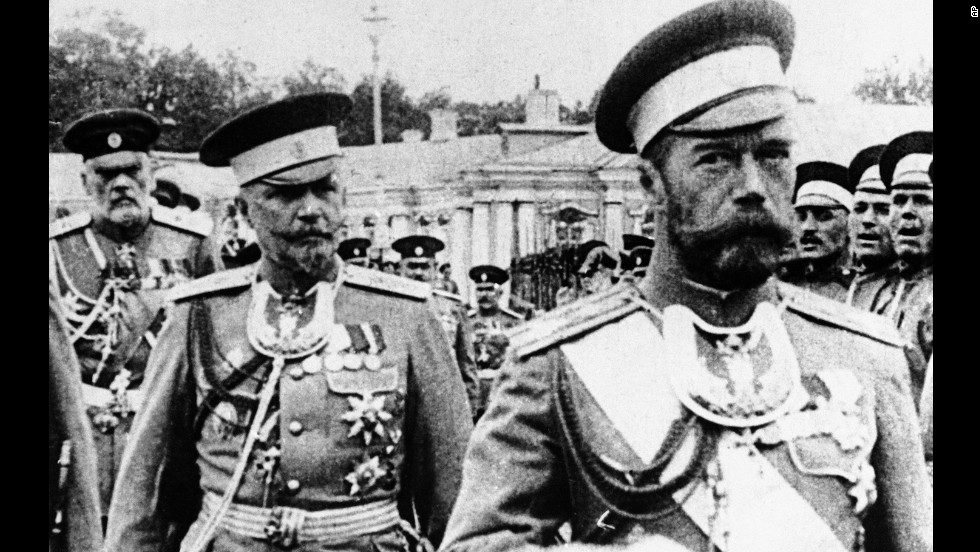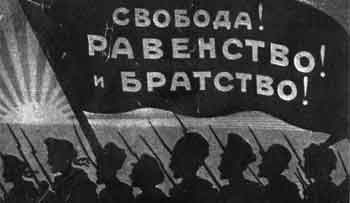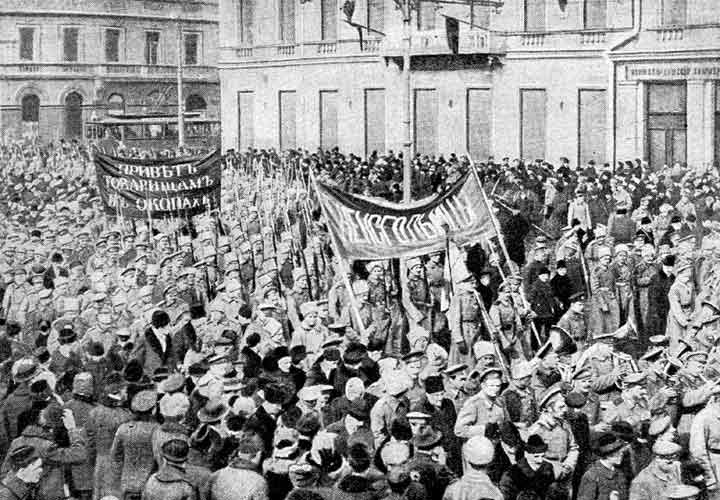Strikes, Violence, Martial Law Hit Russian Capital.
The First Russian Revolution Begins.
Special to The Great War Project.
(9-12 March) On March 10th a century ago, Russia is facing a real revolution.

Revolution breaks out in Petrograd, the Russian capital, March 1917.
“As a general strike began in Russia,” writes historian Martin Gilbert, “Martial Law was declared in Petrograd.”
Tsar Nicholas faces heavy pressure to abdicate the monarchy. But he resists. Violence breaks out.
On these days a century ago, the Tsar is still thinking about territory he will gain for Russia when the war ends. Secret discussions are underway with the French to determine the shape of the Russian Empire.

Tsar Nicholas reviewing the palace guard just prior to the outbreak of revolution.
But Russia’s workers and soldiers have other goals in mind.
Gilbert reports: On March 12th as Nicholas is on his way to Petrograd, “the soldiers of the Petrograd garrison joined the crowds in the streets of the capital demonstrating against him.”
“There was street fighting when soldiers loyal to the Tsar together with the police sought to maintain order, but they were massively outnumbered.”
Soon fires break out across the city.
“As miseries mounted,” writes historian David Stone, “increasing numbers of soldiers refused to participate in the war any further.” Soldiers refused to obey orders, reports Stone.
Writes historian Martin Gilbert, “The first Russian Revolution had begun.”
Historian Stone reports that “the gathering tension on Russia’s home front finally broke on 8 March, a century ago.

Freedom, equality, and brotherhood in the revolution.
“On that day, marches by large crowds of women…who bore the brunt of bread lines and food shortages triggered spontaneous protest strikes by men as well.”
Reports Stone: “Strikes and demonstrations grew dramatically the next day and again the next.”
Violence is limited, but most of Petrograd’s factories are shuttered.
But it is just a matter of time before violence shakes the capital.
“On March 11th,” writes Stone, “troops sent into the streets were ordered to shoot into the crowds, and killed several dozen people.”
Concludes Stone, “That step destroyed Tsar Nicholas’s regime.”
Soldiers strongly resist shooting more civilians. They hold meetings on the night of March 12th. “Unit after unit met and voted to disobey orders to fire on civilians.”
“By March 13th Petrograd was entirely out of government control.”

Civilians and soldiers join hands as revolution breaks out in Petrograd.
In a desperate attempt to gain control of the revolution and avoid complete anarchy in the streets, the leadership of the Russian parliament – the Duma – declare themselves the Provisional Government.
Writes historian Stone, “As soon as the Tsar’s government collapsed, then power in Petrograd and soon in all of Russia was split between two contending bodies…”
The Soviets, which had formed themselves by the spontaneous acts of soldiers and civilians, which have much popular support but no formal legitimacy, “and the Provisional Government which,” according to Stone, “carried some legal authority from the Tsarist days but had at best tepid backing from most Russians.”
Neither commands an army of a million men under arms. That falls to the military command.
The status of the Tsar — as far as the number of troops and rifles he can command — is now not at all clear.
Many generals in the army urge Tsar Nicholas to abdicate.
But on this day a century ago, Nicholas is not yet prepared to take this fateful step.

I read the entire blog over the last week and after finishing this entry, I went to click to the next page and realized I had caught up! Fantastic work, such an interesting time in world history. It seems odd I was taught next to nothing about any of this in high school or college.
The numbers mentioned missing or killed are absolutely mind boggling to me. It’s such a painful loss of life.
Is nationalism, combined with bad decision making, generally understood as the reason events carried on the way they did for so long?
Kudos to you. You give renewed meaning to loyal reader. I can’t tell you how pleased I am at your perseverance. And please stay tuned. There’s more, tragically, to come.